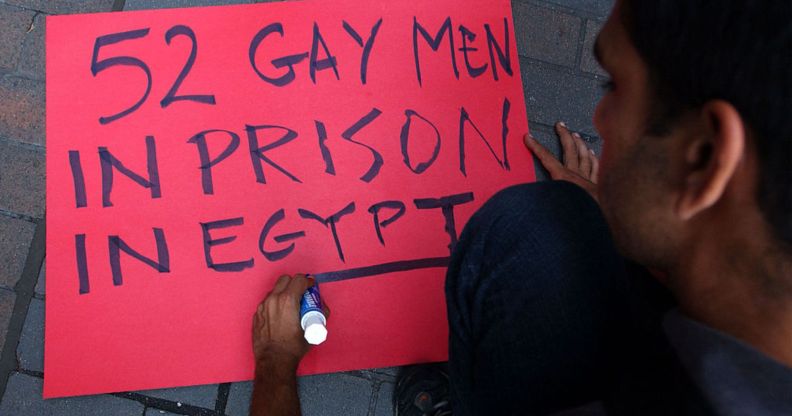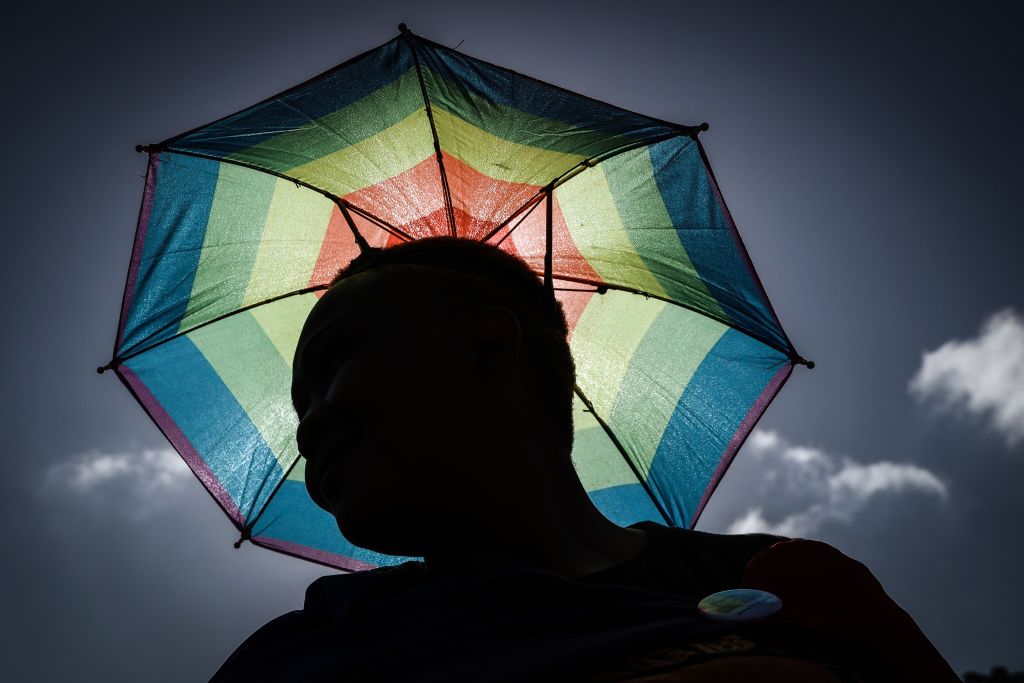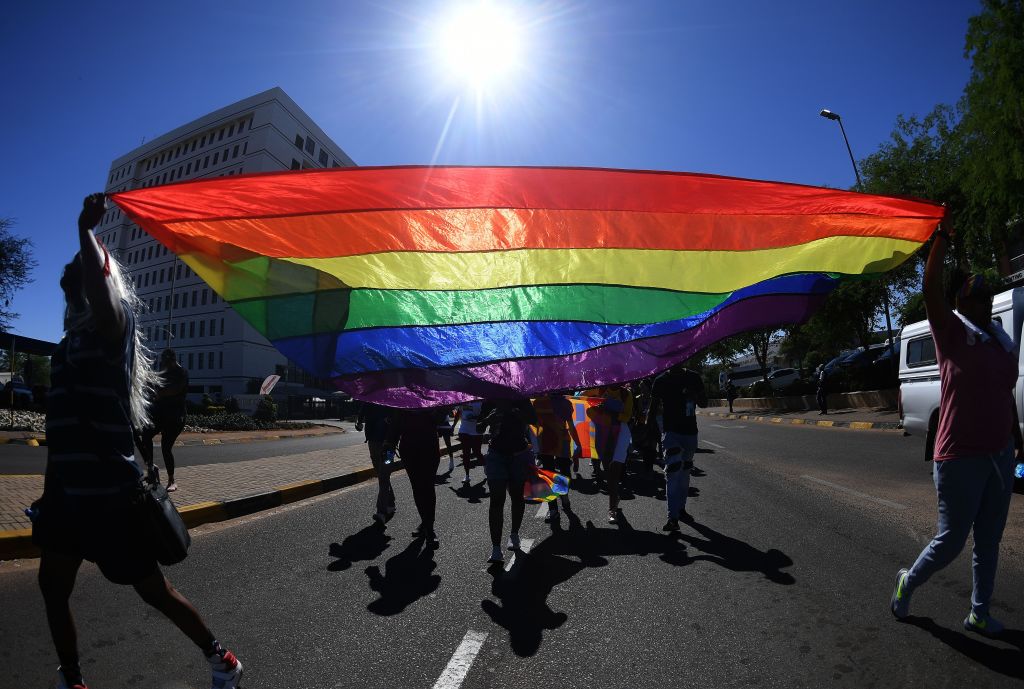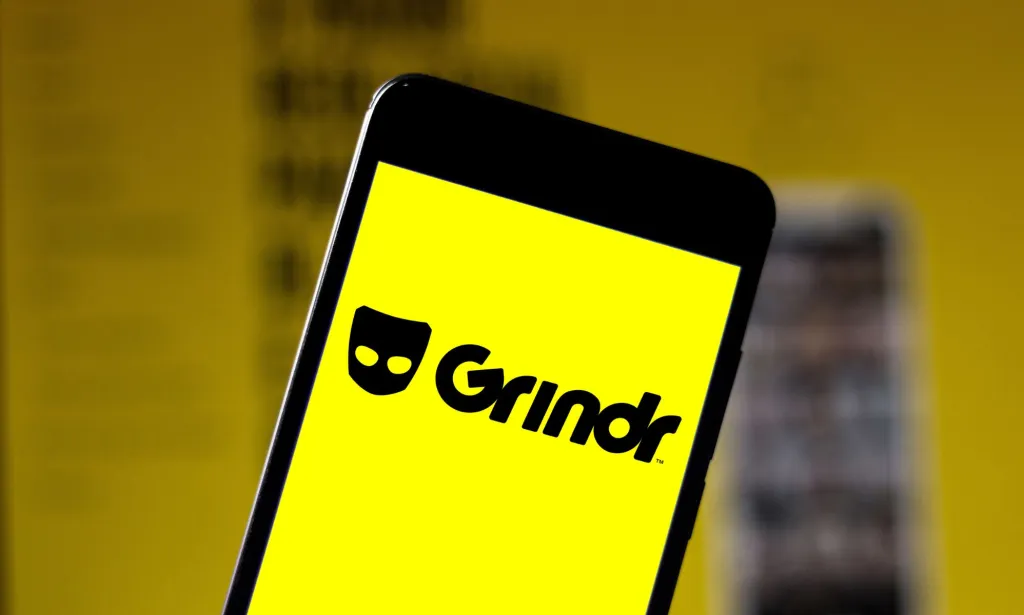Police use fake Grindr profiles to lure, arrest and abuse LGBTQ+ people in Middle East and Africa

Police are using social media to entrap, harass and abuse LGBTQ+ people in five countries, the report has found. (Getty)
Authorities in the Middle East and North Africa are using Facebook, Instagram and Grindr to entrap, abuse and rape LGBTQ+ people, a new report has found.
Officials, including police, are making profiles on apps to lure LGBTQ+ people, before forcing them to unlock their phones under duress by threatening and beating them.
Private photos, WhatsApp and Grindr messages are then used to prosecute them under anti-LGBTQ+ laws.
Human Rights Watch found evidence of the practice in Egypt, Iraq, Jordan, Lebanon and Tunisia after interviewing 90 people directly affected by digital targeting, as well as 30 experts.
In total, Human Rights Watch found 45 cases of arbitrary arrest of LGBTQ+ people who had been targeted online. Some of those who were prosecuted for offences such as “inciting debauchery”, “debauchery” and “prostitution” later had their convictions overturned on appeal.
However, five people were convicted and sentenced to between one and three years in prison. An additional 22 people weren’t charged, but did spend time in pretrial detention, with one person recounting how they were detained for 52 days in Lebanon.

Ayman, a 23-year-old gay man, arranged to meet another man on Grindr. He was met with five police officers.
“They had a rope in the car and threatened to hang me with it if I did not open my phone,” Ayman said.
“They found private photos of me with long hair and other photos with a man and turned it into a case of debauchery and indecency.”
Some of those interviewed said they were denied access to a lawyer, had their phones confiscated, and were forced to sign confessions under duress.
Others recounted being physically, verbally or sexually assaulted, while some were denied food and water and access to medical services. There were also issues with how LGBTQ+ people were detained – some recalled being placed in solitary confinement, while some trans women were held in men’s cells.
Yazid, a 27-year-old gay man from Egypt, recounted how he was entrapped by police in Egypt on Grindr when an officer created a fake profile on the app.
The day after he was arrested, the prosecutor said to him: “You’re the cheap f****t they caught, son of a disgusting w***e, do you f**k or get f**ked?”
The prosecutor ordered he be detained for an additional four days during which Yazid was beaten so badly he lost consciousness.

Officers subsequently told other prisoners that Yazid was a “f****t” – they threw him into a cell with other prisoners, telling him “careful not to get pregnant”.
“I stayed one week in that cell, and between the beatings by officers and sexual assaults by other detainees, I thought I would not survive,” Yazid told Human Rights Watch.
Trans people experienced similar treatment. The report details how a 17-year-old trans girl was subjected to a forced anal exam by authorities in Egypt – the procedure is considered a form of sexual assault and violates medical ethics.
It has also been discredited as a means of establishing whether a person has had anal sex.
One trans woman said she was repeatedly sexually assaulted while being held in a police station in Egypt for 13 months.
Another trans woman, from Jordan, detailed how police entrapped her and subjected her to sexual violence while in detention.
Amar said a police officer told her to go to the bathroom and to make sure nobody was watching. There, he forced her to undress and raped her, telling her not to mention the incident to anybody.
Later, she was forced to sign a report admitting to “practicing sodomy in exchange for money” and “soliciting prostitution” on social media.

The impact of arbitrary detention and entrapment was severe – LGBTQ+ people lost their jobs, faced violence from their families, and were forced to relocate after being released.
Some said they deleted all their social media accounts, while others fled their home country entirely.
Human Rights Watch said digital platforms such as Facebook, Instagram and Grindr are not doing enough to protect vulnerable LGBTQ+ people.
They also urged governments in Egypt, Iraq, Jordan, Lebanon and Tunisia to respect their international and regional obligations to protect the human rights of LGBTQ+ people.
“Online abuses against LGBT people have offline consequences that reverberate throughout their lives and can be detrimental to their livelihood, mental health and safety,” Rasha Younes, senior researcher for LGBT Rights at Human Rights Watch, said.
“While digital platforms have enabled LGBT people to express themselves and amplify their voices, they have also become tools for state-sponsored repression.”

